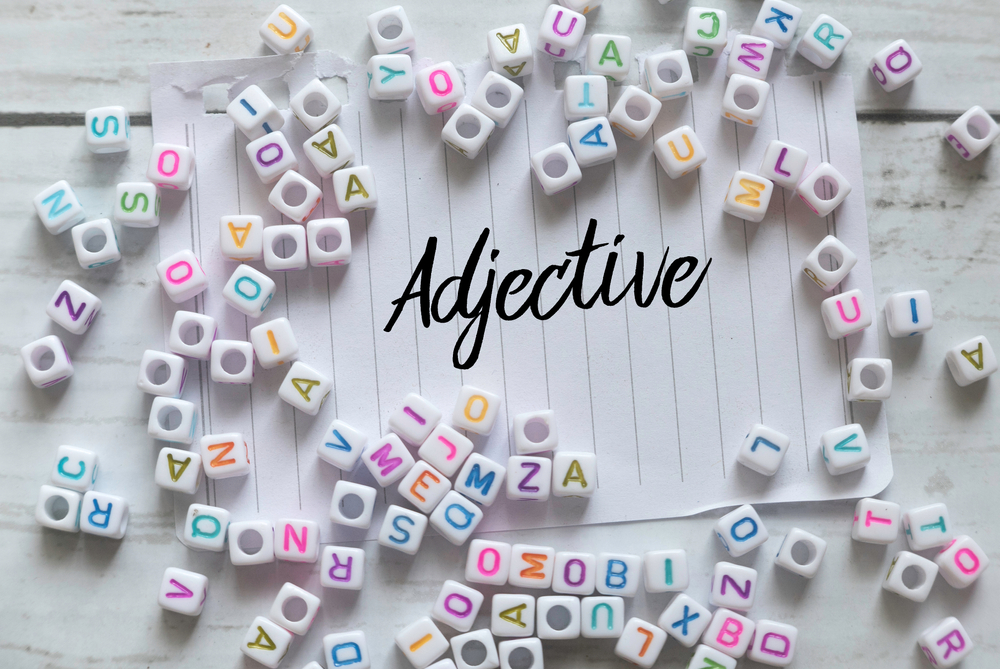Easy Alphabet worksheets activities for Ages 6-9
5 filtered results
-
From - To
Discover a fun collection of Easy Alphabet Worksheets and activities designed for kids ages 6-9! These engaging resources help young learners master letter recognition, phonics, and handwriting skills in an interactive way. Each worksheet is thoughtfully crafted to enhance creativity while reinforcing key literacy concepts. From tracing letters to identifying alphabet patterns, our diverse activities cater to various learning styles, making learning enjoyable and effective. Perfect for home or classroom use, these worksheets will build a strong foundation in literacy. Empower your child's love for reading and writing with our easy-to-use worksheets that turn learning into a fun adventure!
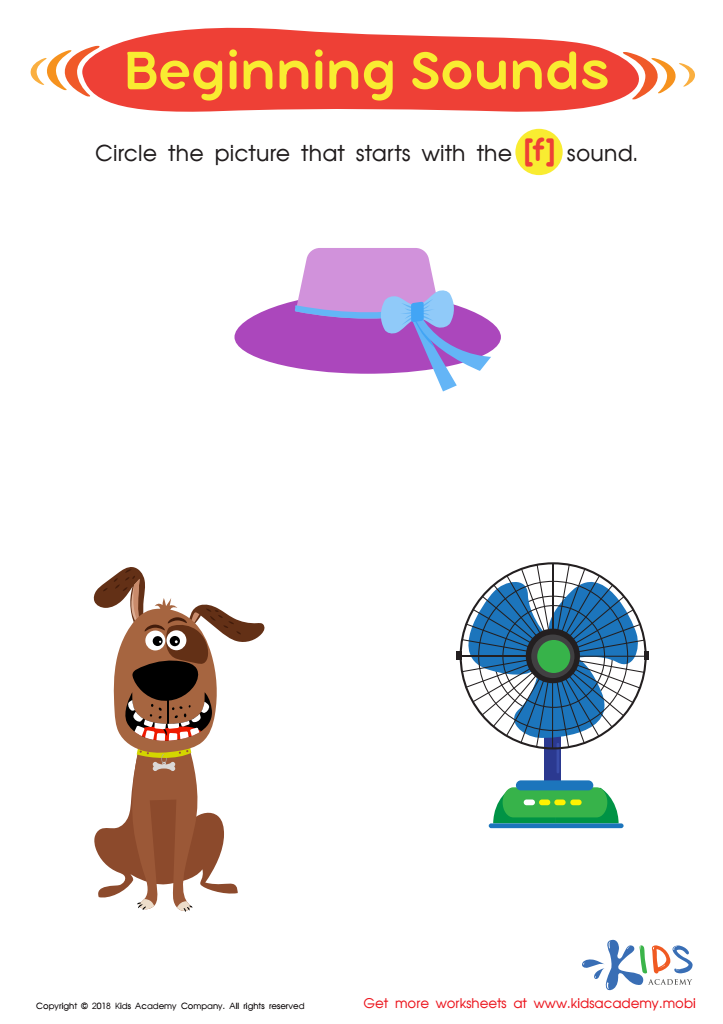

Beginning Sounds Assessment Printable
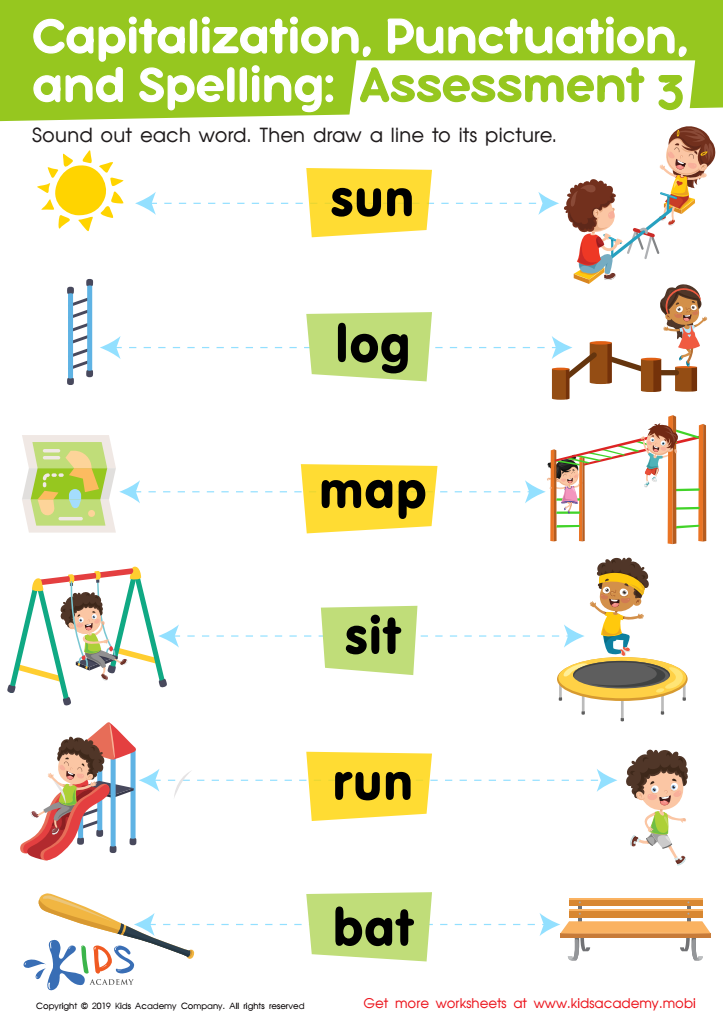

Capitalization. Punctuation. Spelling. Assessment 3 Worksheet
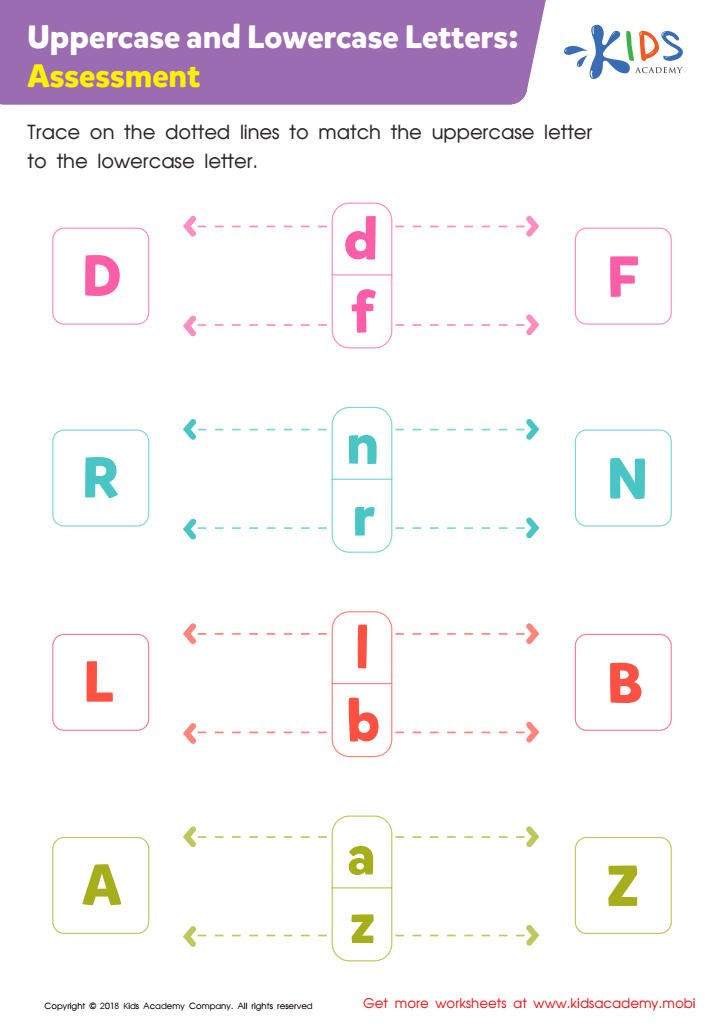

Uppercase and Lowercase Letters: Assessment Worksheet


Phonics and Word Recognition: Assessment 1 Worksheet
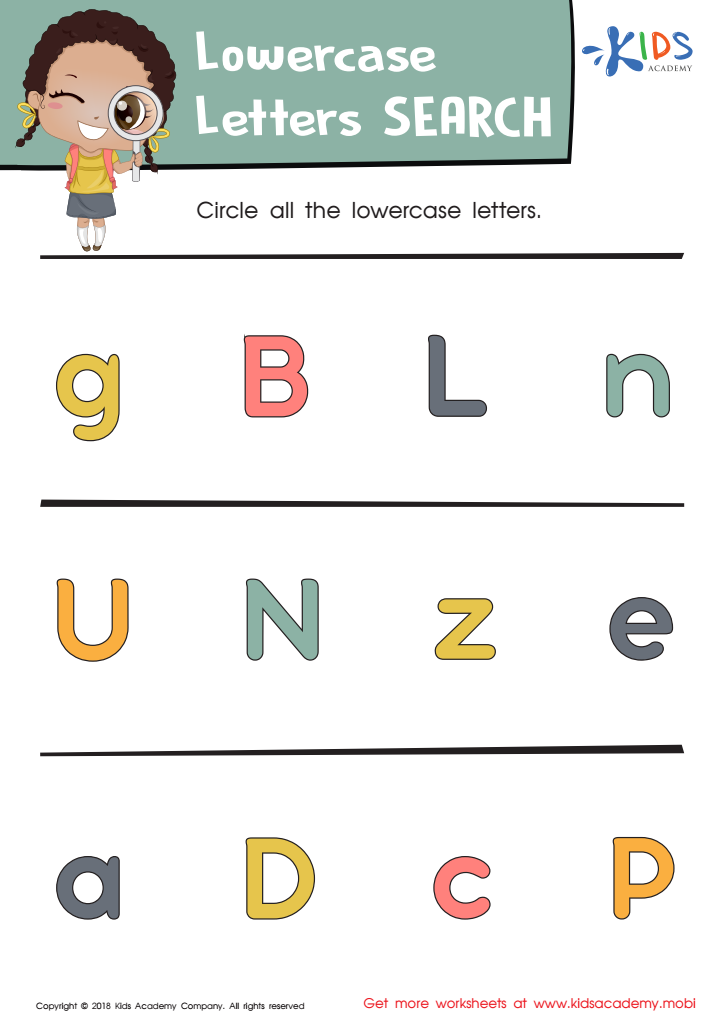

Lowercase Letters Search: Assessment Worksheet
Parents and teachers should prioritize Easy Alphabet activities for children aged 6-9 for several compelling reasons. First, this age range is crucial for developing foundational literacy skills. Engaging in activities centered around the alphabet enhances children's recognition of letters, phonics, and sounds, which are vital for reading proficiency. The variety of activities such as alphabet games, songs, and crafts keeps learning fun and interactive, which promotes not just retention but a love for learning.
Moreover, these activities can cater to different learning styles—visual, auditory, and kinesthetic. For instance, some children may benefit from tracing letters, while others thrive in auditory tasks like singing alphabet songs. Easy Alphabet activities also encourage fine motor skills development, as children practice writing letters and engage in hands-on tasks.
Additionally, incorporating these activities in home or classroom settings fosters a sense of cooperation among children. Working together on alphabet projects cultivates social skills, communication, and teamwork. In summary, focusing on Easy Alphabet activities supports overall literacy development, accommodates diverse learning styles, promotes skill-building, and enhances social connections among children, making it a wise investment in their educational journey.

 Assign to My Students
Assign to My Students





